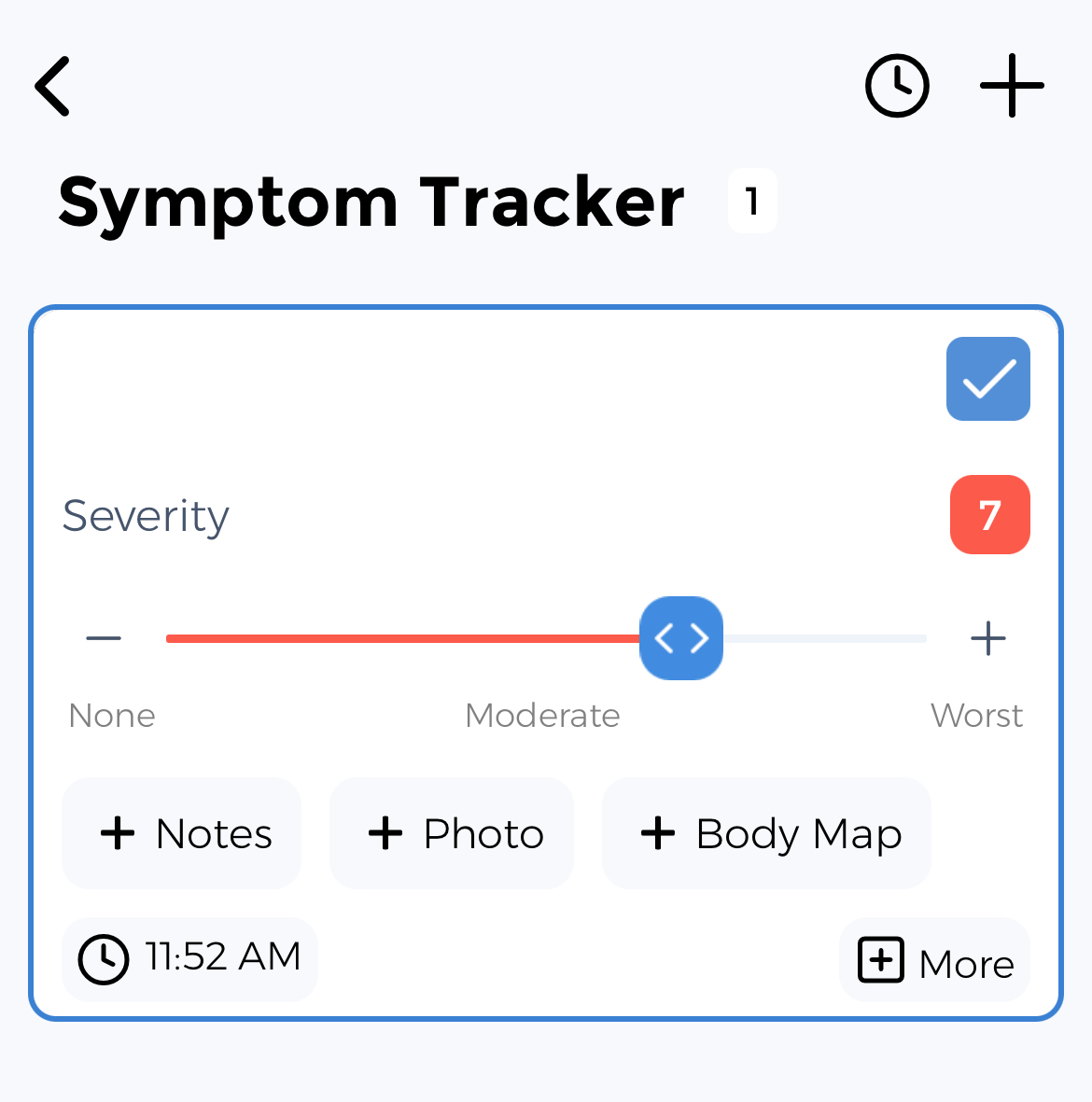Obsessive Compulsive Disorder Symptom Tracker: Your Health Assistant
Living with Obsessive Compulsive Disorder means dealing with intrusive thoughts, compulsive behaviors, excessive checking, and more. But here's the truth: Data is your most powerful tool. Every logged symptom reveals patterns—so you can take informed action.
OCD involves unwanted thoughts (obsessions) leading to repetitive behaviors (compulsions). Tracking triggers, thoughts, and behaviors helps manage symptoms.
Key OCD Symptoms You Should Track
Struggling with symptoms like these? Tracking them reveals patterns, triggers, and how they impact your daily life.
Intrusive thoughts
Compulsive behaviors
Excessive checking
Fear of contamination
Need for symmetry
Anxiety
Distress
Track Your Obsessive Compulsive Disorder Treatments
Tracking how these common treatments affect your symptoms can help you and your healthcare provider optimize your care plan:
Our tracker helps you monitor when you take medications and how they affect your symptoms over time.
Standardized Obsessive Compulsive Disorder Assessments
Complete these evidence-based assessments in the App to measure your severity and monitor your progress:
⚡ Knowledge Is Your Superpower
The difference between feeling overwhelmed by OCD and feeling in control starts with data. When you track your symptoms, you transform uncertainty into clarity. Every data point brings you closer to understanding your unique patterns.
It's free to try for anyone—whether you're managing your own condition, supporting a child, helping an aging parent, or assisting a partner. Our tracker adapts to your specific role in the health journey.
How the CareClinic OCD Symptom Tracker Adapts to Your Needs
Adults
Caregivers
Parents of Children
Young Adults
Your Complete Obsessive Compulsive Disorder Management Toolkit
Uncover Patterns & Insights
Map your OCD symptoms like a detective solving a case.
Understand Your Medication's Impact
Turn guesswork into strategy. See how treatments affect your well-being with clear health insights.
Objectively Measure Your Progress
Use clinically validated tools to objectively measure your progress.
Other Tools You May Like...
Plus 4 more specialized tracking tools available
Access All Tracking ToolsAlso Supports Other Conditions Like
Generalized Anxiety Disorder Tracker
Generalized Anxiety Disorder warriors use our tracker to monitor excessive worry, restlessness.
Major Depressive Disorder Tracker
Major Depressive Disorder warriors use our tracker to monitor persistent sadness, loss of interest.
Post Traumatic Stress Disorder Tracker
Post Traumatic Stress Disorder warriors use our tracker to monitor flashbacks, nightmares.
Autism Spectrum Disorder Tracker
Autism Spectrum Disorder warriors use our tracker to monitor social communication difficulties, repetitive behaviors.
Success Stories from Our Community
"The therapy tracker helped me track how different medications affected my compulsive behaviors. This changed everything about how I approach my Obsessive Compulsive Disorder."
"The emotional relief of understanding my Obsessive Compulsive Disorder better cannot be overstated. When I thought I'd never find answers, but once I could quantify my progress instead of guessing, my anxiety decreased dramatically."
Take Control of Your Obsessive Compulsive Disorder Journey
Transform from feeling like a passive patient to becoming an informed self-advocate. Join thousands who've discovered new insights about their condition.
Designed by people who understand the daily challenges of managing chronic conditions, we're here to support you and your ❤️ ones.
Download Your OCD Tracker NowYour Data is Protected
Private & Secure
HIPAA Compliant
GDPR Compliant
Never Sell Data
Your data is yours: You get full control over who can view your information. CareClinic keeps all your data secure and encrypted.

